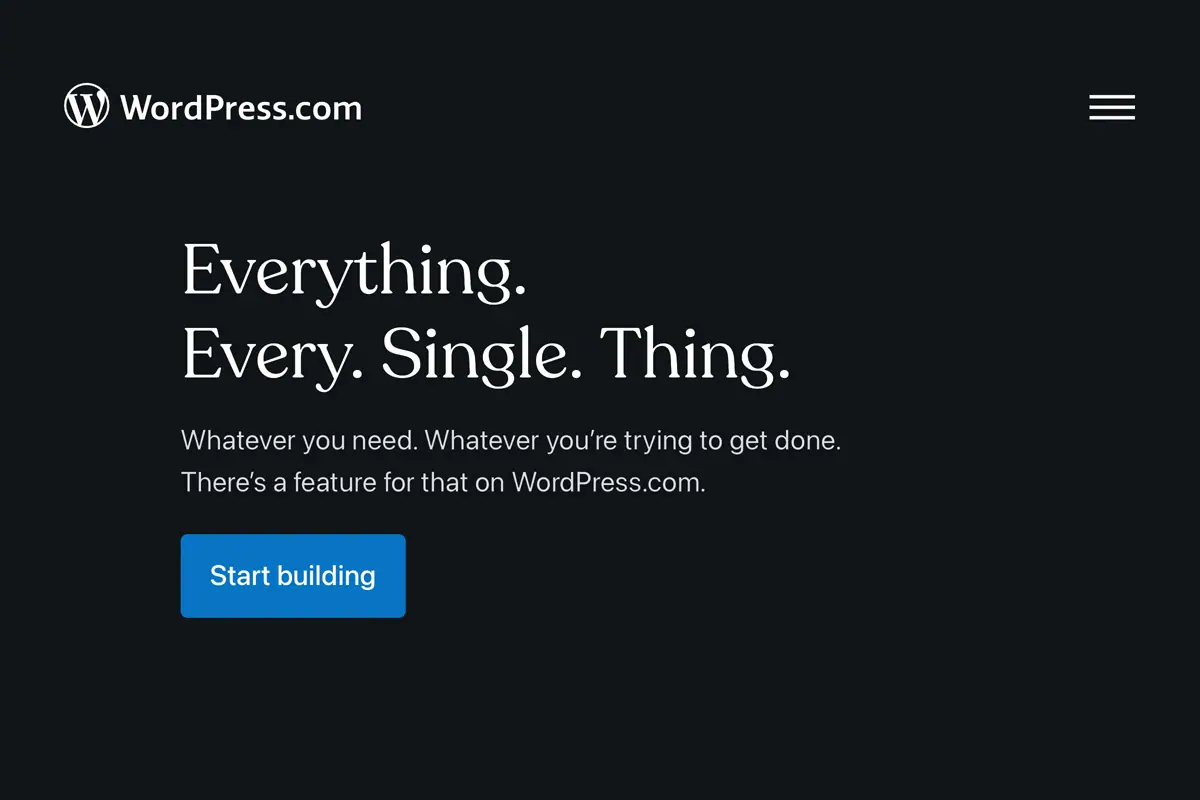CMS use worldwide
CMS - Development of market shares
More than 43% of all websites worldwide utilise WordPress as a content management system (CMS). In terms of the CMS market alone, the share is 62.7%. WordPress is by far the fastest growing and developing CMS on the market.
Use of content management systems (CMS) on websites worldwide
Status: 01.06.2024
Figures in per cent [%]
| CMS | Usage over all | Market Share CMS |
|---|---|---|
| None | 31,8 | – |
| WordPress | 43,3 | 62,7 |
| Shopify | 4,4 | 6,4 |
| Wix | 2,7 | 4,0 |
| Squarespace | 2,1 | 3,0 |
| Joomla | 1,7 | 2,4 |
| Drupal | 1,0 | 1,4 |
| Typo3 | 0,4 | 0,6 |
Within the CMS market, WordPress has a global market share of 62.7%. It is followed by Shopify with a global share of 6.4 %. It is followed by Wix with 4.0%, Squarespace with 3.0%, Joomla with 2.4%, Drupal with 1.4% and Typo3 with 0.6%.
The growing use of WordPress as a CMS is not without reason. WordPress offers many advantages when designing and administering a website. It has the most modern user interface that a CMS currently offers its users and is developing very dynamically.
Strong passwords are mandatory
Security of your website and data
Regardless of the content management system (CMS) used, strong passwords are essential for all server and backend access. A strong password is the first line of defence against unauthorised access and potential cyberattacks. Make sure to use complex and unique passwords consisting of a combination of upper and lower case letters, numbers and special characters. Avoid simple and easy-to-guess passwords such as "123456" or "password".
Hosting: More than just storage space
In addition to password security, the hosting of your website also plays a decisive role in general security. Your hosting provider should not only be easy to use and have support available at all times, but also offer comprehensive security measures. These include protection against brute force attacks, where attackers systematically try out different passwords to gain access, as well as automated backups that can be restored quickly and easily in the event of an attack or technical problem.
Practical tips for password security
Regardless of the content management system used: Strong passwords for all server and backend access are crucial for the security of your website. Pay attention to this. In addition, your hosting should be easy to use and have support available at all times, as well as protection against brute force attacks and automated backups that can be restored at the click of a button if the worst comes to the worst. Then your website is secure.
WordPress: Security despite its popularity
Although WordPress is often the target of attacks due to its high market share, you can ensure a high level of security with the right measures. If you observe the security precautions mentioned above and update your website regularly, you will be well protected. A prominent example is the White House website, which uses WordPress as its CMS and is successfully defended despite an above-average number of hacker attacks.
Conclusion
Keeping your website secure starts with strong passwords. Combine this with a reliable hosting provider that offers comprehensive security measures and practice good security habits to protect your website from threats. By taking these simple but effective measures, you can significantly reduce the risk of cyberattacks and keep your website safe and secure.
—
The WordPress host Raidboxes in Münster has been providing excellent webspace hosting for my site for many years.
